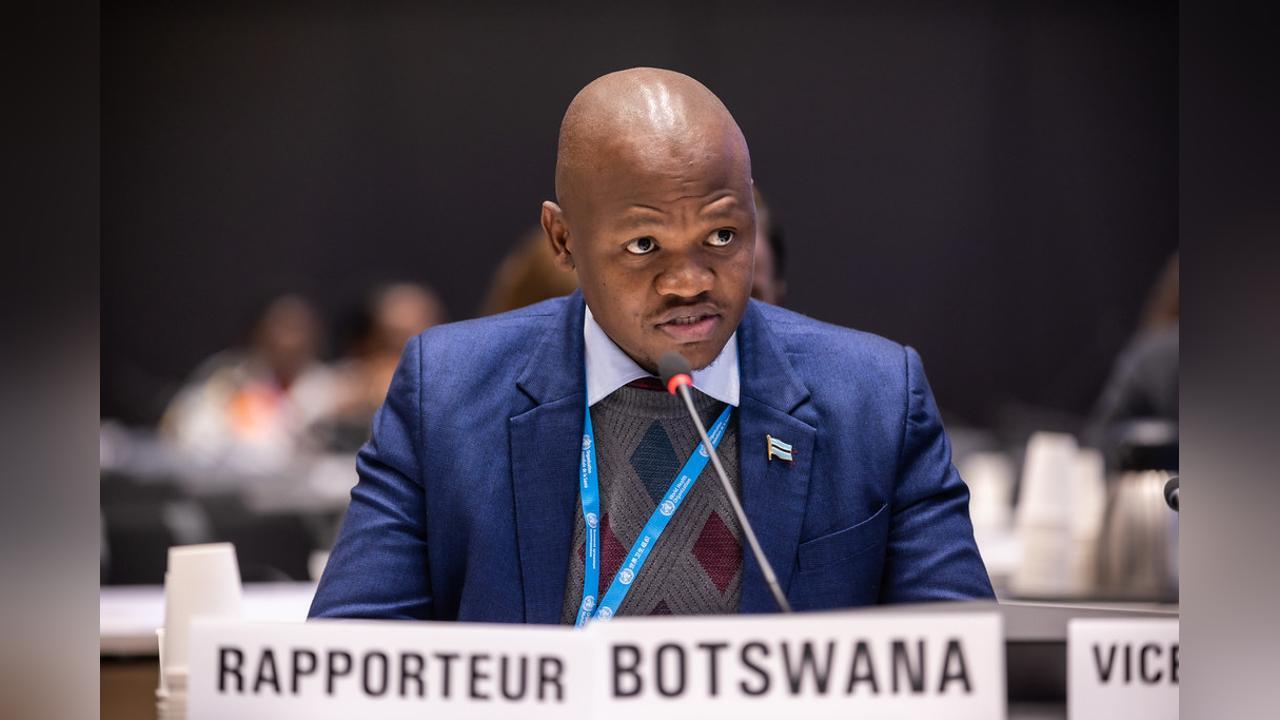Africa-Press – Botswana. The tabling of the Cannabis Bill, 2025 (Bill No. 25 of 2025) before Parliament is a landmark move set to reshape Botswana’s regulatory approach to cannabis.
Presenting the Bill in Parliament on August 12, the acting Minister of Lands and Agriculture, Dr Edwin Dikoloti said the bill, which aimed to tightly govern the cultivation, production, storage, distribution, import and export of cannabis strictly for medicinal, scientific, research and industrial purposes, marked a significant policy shift in the country’s drug control landscape.
Dr Dikoloti emphasised the government’s commitment to creating a structured and secure framework that aligned with international drug control standards while unlocking potential economic and scientific benefits.
At the heart of the bill, he said, was the creation of the National Cannabis Control Authority, a new statutory body that would oversee licensing, compliance and regulation of all cannabis-related activities.
He said the authority would serve as the central node for monitoring and enforcing security measures surrounding the industry, ensuring that cannabis use remained confined to legal and regulated contexts.
“The authority will ensure transparency and accountability in the issuance of licenses for cultivation and use of cannabis for specified purposes, while also putting in place stringent controls to prevent abuse or diversion into illicit channels,” Dr Dikoloti said.
He said the Cannabis Bill also aimed to domesticate Botswana’s obligations under the Single Convention on Narcotic Drugs, 1961, a key international treaty that regulated narcotic drugs and aimed to prevent their misuse.
Dr Dikoloti said by incorporating those standards into domestic law, Botswana sought to position itself as a responsible player on the global stage, ensuring that any cannabis-related activity remained aligned with the international framework.
Among its provisions, Dr Dikoloti said the Bill outlined robust security protocols for all entities engaged in the cannabis value chain, including background checks, secure facilities, transport controls and stringent reporting requirements.
He explained that only licensed individuals or institutions would be allowed to handle cannabis and any breach of the conditions set forth by the authority could result in heavy penalties, including revocation of licenses and potential criminal prosecution.
The acting minister therefore called for the Bill to be adopted saying, it would pave the way for a controlled but potentially lucrative medicinal and industrial cannabis sector in Botswana.
He said the Bill signaled a clear shift in the government’s stance on cannabis, prioritising regulation and innovation while maintaining strict public safety and international compliance.
Dr Dikoloti added that the Bill spoke to regulatory framework board of authority that would be the governing body to address crop development and production, agricultural research, law, pharmaceutical industry, medicine, economics, business, human resources management and information and communication technology.
While some lawmakers have welcomed the Bill as a progressive move with economic and scientific benefits, others have called for cautious deliberation, citing concerns over potential social and regulatory challenges.
Tswapong South MP, Dr Kesitegile Gobotswang, expressed concern about lack of transparency on the stance, describing it as alarming that the government continued to avoid discussing the issue of cannabis in public forums.
He noted that many Batswana misunderstood the subject, often assuming cannabis would be freely and irresponsibly available.
Dr Gobotswang emphasised the need for widespread public education, saying the matter should be openly discussed so that citizens could understand government’s intentions.
He stated that the cannabis programme should be presented as a high-value initiative, similar to diamonds that were not meant for everyone.
Dr Gobotswang also added that instead of focusing on industrial hemp and cannabis, the minister should prioritise horticulture and food production for the country, suggesting other high-value crops such as sunflower and cotton to be considered as well.
Ghanzi South MP, Mr Motsamai Motsamai supported the Bill, stating that as leaders, they were in a difficult situation marked by high unemployment.
He argued that the initiative could bring in much-needed revenue to help the country sustain itself.
Mr Motsamai said the cannabis industry could address unemployment and the shortage of medicine by creating production facilities that hire locals.
He noted that Botswana was lagging behind countries like Lesotho and Malawi, which were already ahead in that space.
Mr Motsamai highlighted the multiple uses of hemp, including in the production of clothing, lotions, and other product.
For More News And Analysis About Botswana Follow Africa-Press






